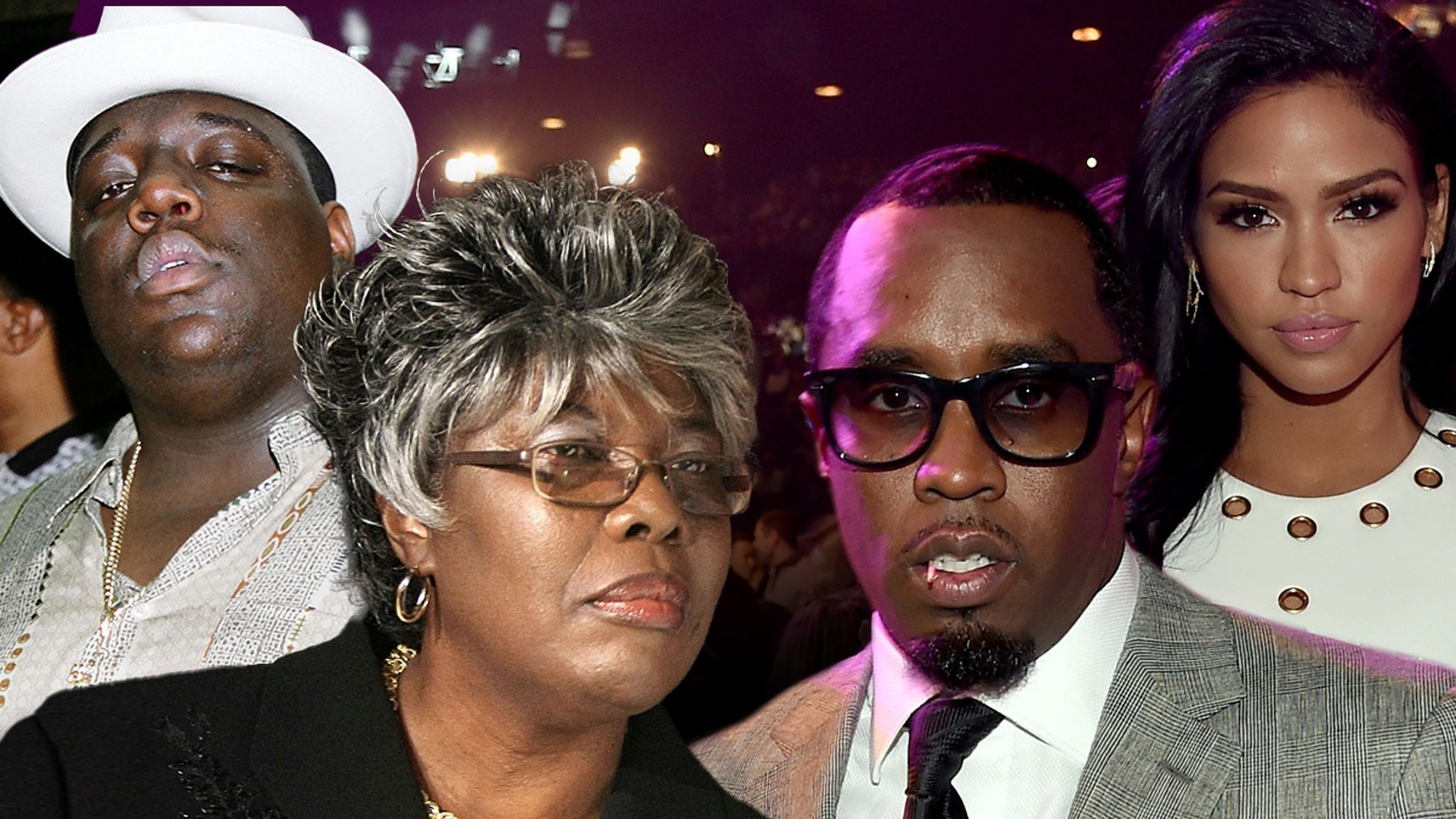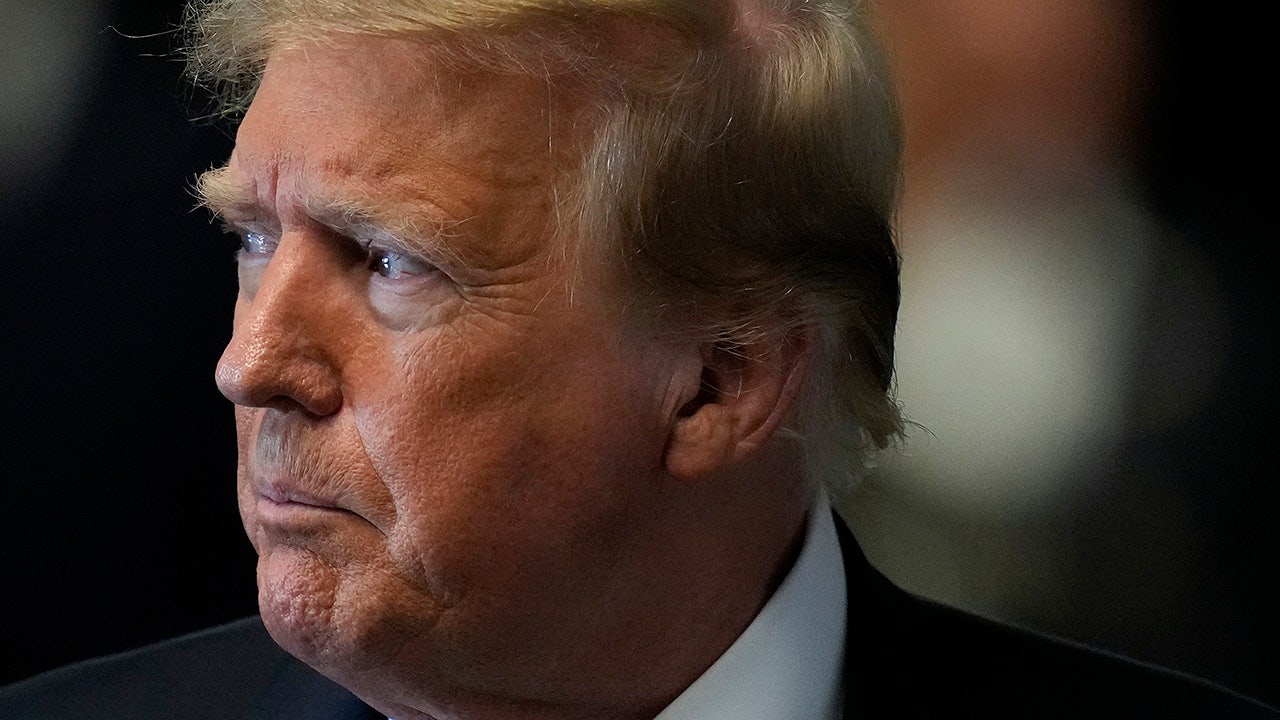New Hampshire
Bakery, New Hampshire town in legal battle over supersized doughnut mural

It hasn’t been a cakewalk for this New Hampshire bakery.
Leavitt’s Country Bakery is embroiled in a legal battle with the town of Conway after officials said that its massive mural of doughnuts outside needs to be taken down.
The bakery’s owner, Sean Young, who filed a First Amendment lawsuit against the town earlier this year, wrote on Facebook Sunday: “Unfortunately the saga isn’t over yet.”
Both sides “agree they will have to litigate this controversy,” according to a joint statement filed Wednesday in federal court.
The painting on Young’s business depicts the sun shining over a colorful array of pastries, including chocolate and strawberry doughnuts with sprinkles, a muffin, cinnamon roll among other baked goods.
The sign, which looms large over Young’s business at approximately 90 square feet, is four times bigger than the local sign code allows.
As a result, zoning officials said the painting was closer to an advertisement than art. Young was told he could either remove the mural, which was painted a year ago by local high school art students — or face the possibility of being met with fines or criminal charges.

He filed a lawsuit in January, saying the town is violating his freedom of speech rights.
According to local officials, the mural would be welcome to stay if it depicted real-life mountains instead of pastries taking the form of mountains — or if the building it was illustrated across was not a bakery.
Both sides agreed in February to pause court proceedings pending a vote on a revised sign code that would allow the painting to stay, but the vote failed to pass.
The measure failed to gain traction during town elections in April, even though locals generally seem to have positive feelings about the painting, according to the Associated Press, citing local newspapers.

The proposed change seemed to fail because it “would only further complicate enforcement” of the town’s zoning rules.
“The town articulated that it continued to view the painted panels affixed to a portion of the Leavitt’s facade as a ‘sign’ prohibited by the sign code. As such, there remains a live controversy between the parties that requires this court’s attention,” a joint statement from both sides released Wednesday read.
Conway will have until July 21 to formally respond to Young’s lawsuit and then both sides will meet by Aug. 4 to submit a report to the judge.

Both sides “continue to believe there will likely be few if any contested issues of material fact,” the statement said.
Young, who is being represented by the Virginia-based Institute for Justice, asked for $1 in damages.
With Post wires.

New Hampshire
Woman, With Priors, Accused Of Selling Fentanyl At Hannaford: Concord Police Log

Tina L. Anderson, born 1971, of Concord was arrested at 4:41 p.m. on May 18 on simple assault and domestic violence-simple assault charges after an incident or investigation at the Everett Arena at 15 Loudon Road.
Grant Boyd Gentzel, 20, of Concord was arrested at 10:21 a.m. on May 15 on a criminal mischief charge after an incident or investigation at Burger King at 15 Hall St. He has two active felonious sexual assault charges and is due back in superior court for a status conference on July 30 and a jury trial on Jan. 21, 2025, according to court records.
Arthur Robert S. Klaeson III, 55, of Rochester was arrested at 11:51 p.m. on May 1 on a driving under the influence charge after an incident or investigation at the Speedway at 175 N. Main St.
Corey Ronald Cyr, 43, of Manchester was arrested at 10:09 a.m. on April 29 on driving after revocation or suspension and motor vehicle not equipped with interlock alcohol device charges after an incident on Poplar Avenue.
Nancy Ali Taban, 27, of Concord was arrested at 8:38 a.m. on April 29 on a disorderly conduct charge after an incident or investigation on Harrod Street.
Kimberly Lynette Orantes, born 1976, received a summons at 12:13 a.m. on April 24 on a driving after revocation or suspension-subsequent charge and a tail lamp and reflectors violation after an incident or investigation on Merrimack Street.
Sylvia A. Colby-Caron, born 1953, of Concord was arrested at 6:10 p.m. on April 23 on driving under the influence and penalty; committing offense on bail charges after an incident or investigation at 2 South Commercial St.
New Hampshire
NH House rejects Senate marijuana legalization plan

Lawmakers in the New Hampshire House have rejected Senate changes to a bill that would legalize marijuana in the state. The move means House and Senate negotiators now have a week to find something that has eluded state lawmakers for years: accord on cannabis legalization.
It also dims the chances that New Hampshire will soon join 24 other states – including the rest of New England – in allowing recreational marijuana for adults.
The House has for the past decade repeatedly voted to legalize cannabis, regardless of which party held the majority.
Until last week, the Republican-led Senate never backed a legalization bill.
Thursday’s House vote to reject the Senate plan – but approve a committee of conference over the bill – came after several staunch advocates for legalization took to the House floor to deride the Senate’s proposal as too flawed to support. That plan would have pushed off legalization until 2026 and create a 15-outlet franchise system for selling marijuana.
“This is not the New Hampshire solution,“ Rep. Kevin Verville, a Deerfield Republican, said. ”This is not what we are looking for.”
But the Senate plan is what Gov. Chris Sununu has said he would sign. Sununu had meanwhile promised to reject the version of the bill that cleared the House earlier this session.
The House’s plan would legalize marijuana immediately, allow adults to possess up to 4 ounces and let 15 state-approved but privately owned stores sell it.
The complicated State House politics surrounding cannabis – including the fact that Republican leaders in the Senate oppose legalization – were featured during Thursday’s floor debate.
“That is the number one reason why you must vote today. You must vote yes,” said Rep John Hunt, a Republican from Ringe. “We have got to get marijuana off the block. We’ve got to get it going.”
But too few were persuaded.
“Yes, our constituents want legalization, and so do I,” said Rep. Heath Howard, a Democrat from Strafford. “But as representatives we have an obligation to insist on better policy.”
House and Senate negotiators have until June 6, to reach a deal on cannabis legalization. Any agreement on the policy would need to be voted on by the full House and Senate before June 13.
New Hampshire
New Hampshire Marijuana Legalization Bill Headed To Conference Committee After House Rejects Senate Amendments

House lawmakers in New Hampshire have rejected Senate changes to a marijuana legalization bill, setting the stage for a conference committee to hammer out differences between versions of the legislation passed by either chamber. Many stakeholders think the development could spell the end for the proposal, however, because even a single member of the conference committee could block the path to final passage.
The House on Thursday voted 196–173 to send the legislation to a conference committee following an earlier vote to reject sweeping Senate-made changes to the bill.
Several representatives who back legalization urged colleagues not to sign off on the new Senate provisions just to get the broad reform enacted.
“Instead of rushing to pass a bill that we all know is flawed, let’s reject this amendment and insist on making better policies for our constituents,” Rep. Heath Howard (D) said before the House floor vote. “We will only get one chance to create a well regulated market for adult-use cannabis, and it’s important we get it right.”
“I know the vast majority of my constituents want legalized cannabis,” added Republican Kevin Verville (R). “They want it in New Hampshire and they want it sooner than later. But this is not the right approach for us.”
The House last month passed an earlier version of the bill, HB 1633, which the Senate later made sweeping changes to via major amendments from Sen. Daryl Abbas (R) and Senate President Jeb Bradley (R), among others. Bradley, who himself opposes legalization, repeatedly said that if the legislation had the votes to pass, he intended to tailor it more to his and the governor’s liking.
Some House lawmakers urged colleagues to grit their teeth and sign off on the Senate version of the bill, warning that supporters of legalization are missing an opportunity to skip a conference committee and send the proposal immediately to Gov. Chris Sununu (R).
Rep. Andrew Prout (R), for example, said he was confident the system that would be created by the Senate-amended legislation “will either work, and be better than driving to any of our neighbors” or that “there will be the political will to fix it in a future term.”
All of the states bordering New Hampshire have already legalized marijuana.
Sununu has indicated he’d support the bill with the Senate changes but would oppose the measure as passed by the House. He said this week that if the House passed the bill with the Senate’s changes, he’d sign it.
“I think the Senate version is OK,” Sununu told NH Journal. “They put some other stuff in there that I wasn’t necessarily looking for, but they’re not deal breakers.”
But if House lawmakers “want to make significant changes,” the governor added, “then it’s not going to pass. It’s that easy.”
One factor worrying some advocates is that the Republican candidates likely to replace Sununu when his gubernatorial term expires early next year have signaled that they’d oppose the reform. That means a failure to legalize marijuana this session could delay the policy change indefinitely.
Because the House and Senate have now passed different versions of the legislation, it next proceeds to a conference committee consisting of lawmakers from both chambers.
While finding compromise is panel’s the ostensible goal, reform advocates expect the bicameral committee will be set up to kill the bill, at least on the Senate side. Bradley, the Senate president, will not only pick the members of the committee from that chamber, but he also indicated this week that he might appoint himself to the panel.
Abbas told Marijuana Moment earlier this week that he’s “not optimistic” the bill “would survive a committee of conference.”
— Learn more about our marijuana bill tracker and become a supporter on Patreon to get access.
Marijuana Moment is tracking more than 1,500 cannabis, psychedelics and drug policy bills in state legislatures and Congress this year. Patreon supporters pledging at least $25/month get access to our interactive maps, charts and hearing calendar so they don’t miss any developments.
—
Sununu, for his part, has said that while he personally opposes legalization, he believes the policy change is “inevitable.”
Polls indicate that upward of 70 percent of New Hampshire voters support legalizing and regulating marijuana.
While HB 1633 was initially introduced by Rep. Erica Layon (R), the Senate changes shifted its core regulatory approach to one discussed late last year by a state commission on legalization chaired by Abbas. Though that body ultimately failed at its charge of crafting legislation to enact the reform, Abbas and others in the Senate incorporated a number of provisions that were raised during discussions last year.
Layon previously said she would speak out on the floor against the Senate changes, but she did not participate at all in Thursday’s debate. The lawmaker did not respond to Marijuana Moment’s multiple requests for comment this week.
If the committee does undertake its work in earnest, its job will be to reconcile two complex bills that differ significantly on regulatory structure, criminal justice, licensing, personal possession and THC limits, tax rates, medical marijuana and sundry other issues.
As passed by the Senate, the bill would allow 15 franchise stores to open statewide. Purchases would incur a 15 percent “franchise fee”—effectively a tax—that would apply to both adult-use and medical marijuana purchases. Though stores would be privately run, the government would control their look, feel and operations. The Liquor Commission would have the authority, for example, to set final prices on cannabis products.
Marijuana possession wouldn’t become legal until 2026, once the state’s licensed market is up and running.
The proposal would limit each municipality to only a single cannabis retail establishment unless it’s home to more than 50,000 people, though only two cities in the state, Manchester and Nashua, meet that threshold. Local voters would also need to pre-approve the industry in order for businesses to open in that jurisdiction.
Adults could possess up to two ounces of marijuana under the Senate plan. Home cultivation of cannabis for personal use would remain illegal, and the state’s Cannabis Control Commission would have the authority to enforce that provision.
Smoking or vaping marijuana in public would be a violation on the first offense and an misdemeanor for second or subsequent offenses within five years, a charge that could carry jail time. Consuming cannabis in other forms in public—for example, drinking an THC-infused beverage—would carry no punishment, unlike open container rules around alcohol.
The bill would also outlaw consumption of cannabis by any means, including edibles, by any driver or passenger of a vehicle being driven in any way. That would also be an unclassified misdemeanor with the potential for jail time.
The version of the bill passed by the House in April, by contrast, would legalize through a so-called “agency store” model proposed by Layon, in which the state would oversee a system of privately run stores, with strict limits on marketing and advertising. That version also includes a higher personal possession limit of four ounces and a lower, 12 percent fee on purchases. Further, medical marijuana would be been exempt from the state surcharge, and personal possession would become legal immediately.
The House bill, like the Senate version, would not allow home cultivation of cannabis.
The Senate changes led supporters of the reform to disagree on how the House should proceed. Advocates with the state ACLU chapter and the Marijuana Policy Project (MPP), who poured hours into lobbying lawmakers on the bill, said the revised proposal represented an imperfect but nevertheless important reform in New Hampshire, urging House lawmakers to accept the Senate changes and move the legislation along.
Other advocates, however, including the New Hampshire Cannabis Association (NHCann) and the bill’s lead sponsor, Layon, argued the House shouldn’t sign off on the amendments, even if that meant derailing the bill.
New Hampshire lawmakers worked extensively on marijuana reform issues last session and attempted to reach a compromise to enact legalization through a multi-tiered system that would include state-controlled shops, dual licensing for existing medical cannabis dispensaries and businesses privately licensed to individuals by state agencies. The legislature ultimately hit an impasse on the complex legislation.
Bicameral lawmakers also convened the state commission tasked with studying legalization and proposing a path forward last year, though the group ultimately failed to arrive at a consensus or propose final legislation.
The Senate defeated a more conventional House-passed legalization bill last year, HB 639, despite bipartisan support.
Last May, the House defeated marijuana legalization language that was included in a Medicaid expansion bill. The Senate also moved to table another piece of legislation that month that would have allowed patients and designated caregivers to cultivate up to three mature plants, three immature plants and 12 seedlings for personal therapeutic use.
After the Senate rejected the reform bills in 2022, the House included legalization language as an amendment to separate criminal justice-related legislation—but that was also struck down in the opposite chamber.
Lawmakers Push To Let VA Doctors Recommend Medical Marijuana And End THC Testing For Federal Job Applicants
Photo courtesy of Chris Wallis // Side Pocket Images.
-

 News1 week ago
News1 week agoThe states where abortion is on the ballot in November : Consider This from NPR
-

 News1 week ago
News1 week agoRead Prosecutors’ Filing on Mar-a-Lago Evidence in Trump Documents Case
-

 Politics1 week ago
Politics1 week agoMichael Cohen swore he had nothing derogatory on Trump, his ex-lawyer says – another lie – as testimony ends
-

 Politics1 week ago
Politics1 week agoAnti-Israel agitators interrupt Blinken Senate testimony, hauled out by Capitol police
-

 World1 week ago
World1 week agoWho is Ali Bagheri Kani, Iran’s acting foreign minister?
-

 World1 week ago
World1 week agoSerbian parliamentary minnow pushes for 'Russian law' equivalent
-
Technology1 week ago
Microsoft’s new Windows Copilot Runtime aims to win over AI developers
-

 News1 week ago
News1 week agoBuy-now, pay-later returns and disputes are about to get federal oversight



















/cdn.vox-cdn.com/uploads/chorus_asset/file/25458338/DSC00620.JPG)